ROAD TO DEMOCRACY ESSAY GRADE 12
ROAD TO DEMOCRACY ESSAY SAMPLE (TALKS/NEGOTIATIONS) NOTE:your introduction and conclusionis highlighted with green colour.Your lines of arguments are highlighted withred colour.
One would totally agree with the statement that it was leadership,negotiations and compromises among various leaders that ensured that South Africa become a democratic state.For example,Nelson Mandela and De Klerk worked together including ot her organisations to bring democratic South Africa on 1994. (Make sure your introduction is not longer than 5 pages) In1981,FW De Klerk replaced PW Botha as a state president of South Africa and immediately made drastic changes by unbanning political parties and release political prisoners.De Klerk made an announcement for the release of Nelson Mandela on 11 February 1990.This was a huge step taken by De Klerk and it gave people hope that the apartheid was coming to a nend. (Make sure your back ground is not more than 5 lines).
The National Party(NP) and African National Congress(ANC) delegation met at two locations to discuss the way on how they will work together towards the democratic South Africa.The first meeting was held in 2 May1990 at the official resident house of Groote Schuur and it was called the Groot Schuur Meeting.In this meeting both ANC and NP agreed on ending violence which were occurring in the country and to work together towards the process of negotiations or talks to bring a democratic South Africa.The second meeting were held at Pretoria on 6 August 1990 which led to an agreement called the Pretoria Minutes.Here the ANC government agreed that they will suspend the armed struggle and the NP government agreed to end the state of emergency.Other major law were removed.The Group Areas Act and Registration Population were also removed.This convinced countries that imposed sanctions to S.A and boycotts to stop them.Thus,the leadership and negotiations and compromises among various leaders ensured that South Africa become a democratic country in1994.
Although,the violence did not stop in the country between Inkandla Freedom Party(IFP)and ANC.The IFP supporters attacked ANC on commuter trains and led into almost 573 deaths. It was emerged that the NP government handed weapon to IFP supporters to eliminate ANC supporters.This created a huge distrust between ANC and IFP including NP.Another violence occurred in Sebokeng in hostels when the IFP attacked ANC strong hold and almost 30 people died.Moreover,another violence occurred in ZonkizizweTownship in Germistonin Gauteng between supporters of the IFP and the ANC.The ongoing violence between the ANC and IFP members led into a Seven Day Warat Pietermarisburg (PMB).Therefore,the violence and uncertainly that confronted South Africa in the early1980s almost delayed the process of negotiations.
Moreover,the formal negotiations occurred on 20December 1990 at Convention for Democratic South Africa(CODESA1)at Trade Work Centreat Kempton Park.Nineteen political organisations including UNO and common wealth.Even though talks sometimes broke down but the Declaration of Intent was signed.It was agreed that South Africa should be an undivided country.Free from apartheid, discrimination and all other forms of prejudices.This also led into accountability of a meeting by four groups that were preparing for the future meeting which was CODESA2 which were to be held in May2.The PAC and PC boycotted against the CODESA.The IFP and the Independent Bophuthatshwana did not sign it because the irrequest for an extra delegation for the Zulu King was refused.Therefore, compromises among various leaders ensured that South Africa become a democratic state in1994.
Furthermore,DeKlerk called for a white only referendum on1991. Here DeKlerk wanted to see if the white people were still with him from the negotiations he had started making from 1990 to change South Africa.The majority voted positive and it was clear that he should continue.This gave people hope that apartheid was coming to an end.Thus,the compromises also ensured that South Africa become a democratic country in1994.
CODESA2 occurred on May1991.It was agreed that the SABC should presents the neutral view of the negotiations on televisions.The NP and ANC did not agreed on major power sharing like power sharing,majority rule and regional powers.The NP still wanted a major place from the government and the ANC did not admit on that.The ANC and NP did not come into consensus solution on how they will end the violence in South Africa. As a results,ANC and COSATU walked out of the negotiations and called for a mass rally to force government to compromise.Therefore,it was leadership,negotiations and compromises among various leaders that ensured that South Africa become a democratic state.
Even though the official negotiations had ended but the unofficial negotiations continue between Cyril Ramaphosa and Roef Meyer. The Record of Understanding was signed between Cyril Ramaphosa of ANC and Roef Meyer of the NP.This committed and encouraged South Africa to work together again towards the negotiations.Moreover,Joe Slovo came up with Sunset Clause on April 1993.The Sunset Clause allowed the National Party government until 2000.It also protected the security jobs for whites people for more than 10years.Therefore, the commitment and compromises among various leaders ensured that South Africa become a democratic country in 1994.
Moreover, the violence did not end between IFP and ANC.The ANC attacked the squatter camps of the ANC near the township of Boipatong in the Gauteng and almost 49people died.It was said that a white man was the one who handed over the Force Defence Agency to cause violence and chaos.The ANC called for a march to the Cickel to protests against homeland leaders.Here almost 79 people died and 200 people got injured when they were trying to break through the police barriers.The assassination of Chris Hani almost stopped the negotiations process of the elections.Chris Hani was a General Secretary of the Communist Party(CP) and he was assassinated on1993 by members of the Military Wink.There was a violence and chaos in a country after his assassination. DeKlerk realised he could not deal with this anymore and called for Nelson Mandela to address the issue. Mandela addressed that on national television that there must calm down and stop fighting each other.Thus,thev iolence and uncertainty that confronted South Africa in the early 1980s almost delayed the process of negotiations.
Moreover, the Multi talks began on 1993April1. It was said that the date of the election was going to be 27thApril1994 on this meeting which was held at World Trade Centre. Furthermore, the AWB and Volk front stormed the World Trade Centre attempt to disturb the negotiations.They vandalised the entrance and threatened delegation.The AWB was killed by the South African Defence Force.The APPLA opened on fire on St James Church and killed 11 people.The IFP marched to Shell House and was killed by ANC security.This led to a Shell House Massacre.Then DeKlerk, Mandela and Buthelezihada meeting led to IFP joining the negotiations.Then finally the election held free and fairly. ANC won the elections and Nelson Mandela became the first president of South African Democratic Country.The election were held on 27 April 1994. DeKlerk and Thabo Mbheki became deputy president. Therefore, the compromises, negotiations and leadership ensured that South Africa become a democratic country in 1994.
To conclude, it was leadership,negotiations and compromises among various leaders that ensured that South Africa become a democratic state in 1994. For example Nelson Mandela and De Klerk compromised so much working with other organisations to bring democracy in South Africa. (Your conclusion must be less than5lines).
MAKE SURE YOU WRITE LINES OF ARGUMENTS ON EACH AND EVERY PARAGRAPH. For more information or questions feel free to contact me via Whatsapp or calls to 0729272510(Msawenkosi Chamane) GOODLUCK!!!!!!

Related items
- Mathematics Grade 12 Investigation 2023 Term 1
- HISTORY PAPER 2 GRADE 12 ADDENDUM - NSC PAST PAPERS AND MEMOS JUNE 2022
- TECHNICAL SCIENCES PAPER 2 GRADE 12 QUESTIONS - NSC PAST PAPERS AND MEMOS JUNE 2022
- TECHNICAL SCIENCES PAPER 1 GRADE 12 QUESTIONS - NSC PAST PAPERS AND MEMOS JUNE 2022
- MATHEMATICS LITERACY PAPER 2 GRADE 12 MEMORANDUM - NSC PAST PAPERS AND MEMOS JUNE 2022
- Society and Politics
- Art and Culture
- Biographies
- Publications

Grade 12 History Exam Preparation
This page has resources that will assist Grade 12 History students to prepare for their final exams. By this point, students should know the curriculum content. Students can use this section to revise and practice applying what they have studied.
History Classroom Technical Skills
These packs go through mark allocation, how to analyse sources, how to answer source-based questions and how to structure essays. The following packs should be consulted before attempting to answer past exam papers.
History Paper 1 and 2 will require students to answer source-based questions and essay questions. The papers are split according to topics.

History - Focus on Paper 1 (Live)
In this Grade 12 History Exam Revision live show we take a close look at questions and concepts relating to History Paper 1.
Download the Show Notes: [ http://www.mindset.co.za/learn/sites/...
Impact of the Cold War
In this Grade 12 History Exam Revision lesson we take a close look at questions and concepts relating to the Impact of the Cold War.
Download the Show Notes: http://www.mindset.co.za/learn/sites/...
Truth & Reconciliation Commission
In this Grade 12 History Exam Revision lesson we consider how the Truth and Reconciliation Commission (TRC) dealt with South Africa's past.
South Africa Emerging as a Democracy
In this Grade 12 History Exam Revision lesson we consider what were the various obstacles that South Africa faced on the road to democracy.
Impact of Collapse of USSR on SA
In this Grade 12 History Exam Revision lesson we consider how the collapse of the Soviet Union contributed to the ending of Apartheid in South Africa in 1989.
Civil Society Protests
In this Grade 12 History Exam Revision lesson we take a close look at questions and concepts relating to Civil Society Protests in South Africa.
Civil Resistance in South Africa
In this Exam Revision lesson we take a close look at Gr 12 History questions and answers relating to Civil Resistance in South Africa.
Gr 12 History: Exam Questions (Paper 1)
In this live Gr 12 History show we take a look at various Exam Questions. In this lesson we work through questions from the Feb/Mar 2013 Paper 1 as preparation for the exams..
Gr 12 History: Exam Questions (Paper 2)
In this live Gr 12 History show we take a close look at Paper 2 Exam Questions. In this lesson we work through various questions from the Feb/Mar 2013 Paper 2 as preparation for the exams.
Past Papers
Past papers can be used to practice answering questions. It is highly advised to practice writing exam papers before your exam.
Click here for more past papers.
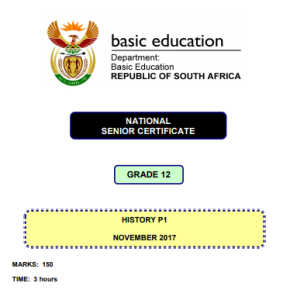
Grade 12 Students: Download This PDF for Acing Your Road To Democracy Essay!
- August 25, 2023
Austin Finnan
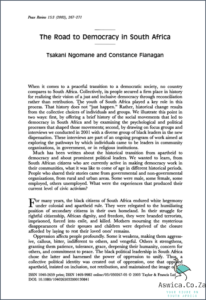
The Road to Democracy in South Africa was a long and difficult one, marked by many setbacks, detours and dead ends. But ultimately it was a journey that led to the country’s first truly democratic elections in 1994 and the inauguration of Nelson Mandela as its first black president.
The road to democracy in South Africa began long before 1994. It was the product of centuries of struggle by the country’s black majority against the white minority rule that was imposed on them by the British colonialists who first settled in the country in the 17th century .
The struggle against colonialism and white minority rule took many different forms over the years. It was a struggle for political rights, for economic justice, for social equality and for human dignity.
It was a struggle that was fought in the courts, in the streets, in the townships and in the forests. It was a struggle that was led by many different leaders, each of whom left their own indelible mark on the history of the country.
The road to democracy in South Africa was not an easy one. But it was a journey that was worth taking, because it led to a better future for all South Africans , black and white.
- 1 Road To Democracy Essay Grade 12 Pdf Download
- 2 Benefits of democracy
- 3 Challenges of democracy
- 4 Strategies to promote democracy
- 5 Conclusion
Road To Democracy Essay Grade 12 Pdf Download
The Road to Democracy Essay Grade 12 PDF Download is an invaluable resource for any student wishing to gain a better understanding of the path to democracy. This educational resource offers a comprehensive overview of the different stages of democracy, including its origins, development, and current state. It also provides insight into the various challenges faced by democratic countries as well as the potential solutions to these issues. Furthermore, the essay provides a detailed analysis of the roles of citizens in maintaining a democracy, as well as the importance of civic education and civic engagement. With its in-depth analysis of these topics, the Road to Democracy Essay Grade 12 PDF Download is an excellent resource for students seeking to gain a better understanding of the path to democracy.
Benefits of democracy
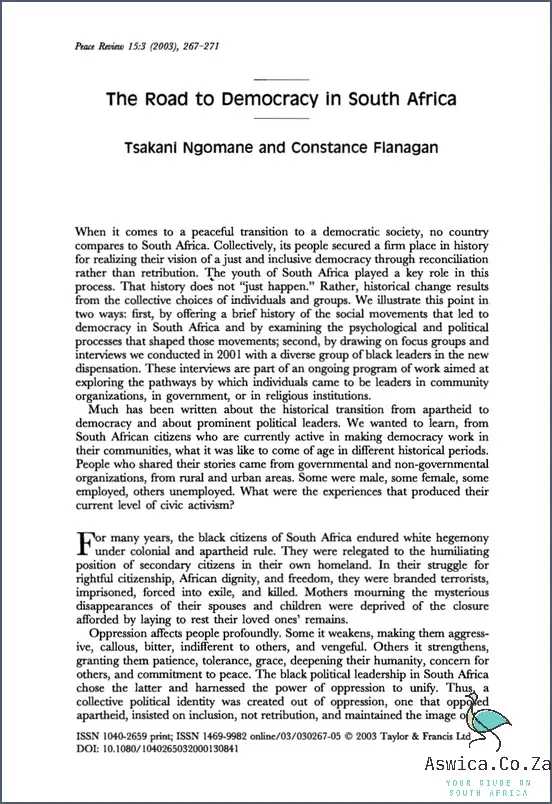
Democracy is an essential form of government that has been embraced by countries around the world. It is based on the idea of free and fair elections, majority rule, and the protection of minority rights. Democracy has brought with it many benefits that have helped to improve the lives of people in many countries. Here are some of the major benefits of democracy that make it so appealing.
The first benefit of democracy is the protection of individual rights and freedoms. In a democratic system, all citizens have the right to freedom of speech, freedom of religion, and the right to vote. Furthermore, the government must respect and uphold these rights, as outlined in the country’s constitution. This ensures that citizens can express their opinions without fear of retribution and gives them a say in the decisions that affect their lives.
Another benefit of democracy is the promotion of economic growth and development. Democracies are more likely to have open and competitive markets, which encourages investment and creates jobs. This, in turn, helps to reduce poverty and inequality. Furthermore, democracies tend to have higher levels of education, which helps to promote innovation and productivity.
Finally, democracy is beneficial for international relations. Democracies tend to be more stable and less prone to conflict. They are also more likely to sign international agreements and treaties, which can help to promote peace and cooperation between countries.
Overall, democracy has a number of benefits that make it an attractive form of government. It protects individual rights and freedoms, promotes economic growth and development, and contributes to international peace and cooperation. It is no wonder that so many countries around the world have embraced democracy as the best way to ensure the well-being of their citizens.
Challenges of democracy
The road to democracy is often a difficult and winding one, filled with numerous challenges and obstacles. As we progress towards a better, more representative form of government, it is essential to consider the challenges that stand in the way of achieving a true democracy. The Grade 12 Road To Democracy Essay PDF Download is a comprehensive resource that delves into these challenges, providing insightful analysis and valuable information on the path to a more equitable society.
One of the most significant challenges of democracy is the lack of representation for minority groups. In many democracies, certain populations are underrepresented, leaving them unable to have their voices heard or their interests represented. This can lead to a lack of access to resources and opportunities, as well as an increased risk of discrimination and marginalization. The Grade 12 Road To Democracy Essay PDF Download discusses the importance of ensuring that all citizens have access to representation, regardless of age, gender, ethnicity, or socioeconomic status.
Another major challenge of democracy is the issue of corruption. In many democracies, corruption is rampant and has had a damaging effect on the functioning of government. It can lead to a lack of transparency and accountability, as well as a weakening of the rule of law. The Grade 12 Road To Democracy Essay PDF Download highlights the importance of addressing corruption and ensuring that all citizens have access to a fair and just system of government.
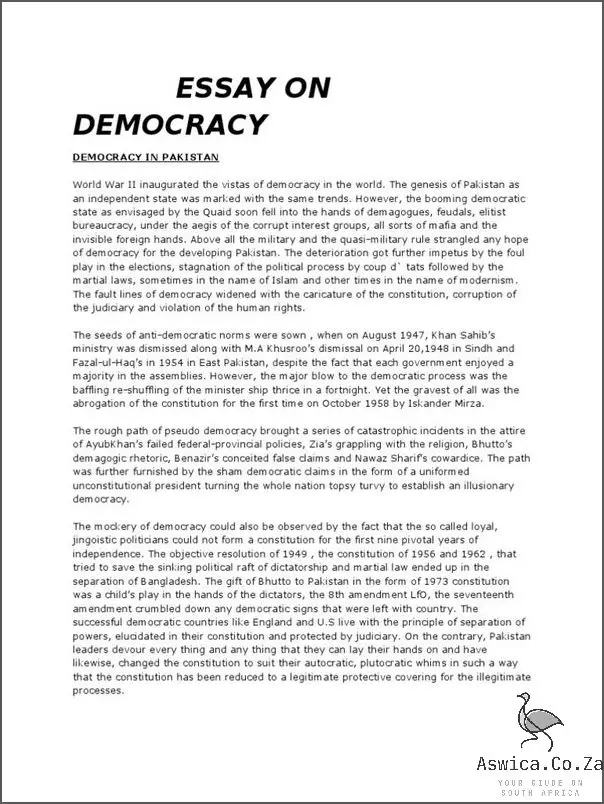
Finally, the challenge of polarization is also a significant obstacle to democracy. In many countries, the political divide has grown increasingly deep, leading to an inability to compromise and reach consensus on important issues. The Grade 12 Road To Democracy Essay PDF Download encourages citizens to become more involved in the political process and to work to bridge the divide between different political parties.
The Grade 12 Road To Democracy Essay PDF Download is an invaluable resource for anyone looking to understand the challenges of democracy and the steps we can take to overcome them. By providing detailed analysis and useful information on the path to a more equitable society, this resource is essential for anyone wanting to make a difference and help create a better future.
Strategies to promote democracy
The journey to democracy is a long and winding one, full of twists and turns that can often be difficult to navigate. With so many different paths to take, it is important to understand the strategies necessary to promote democracy and ensure that it is maintained. In this blog post, we will explore some of the strategies to promote democracy and how they can be applied to a grade 12 essay on democracy.
One of the most effective strategies to promote democracy is through education. Education plays an important role in helping individuals understand the principles of democracy, such as the importance of equality, justice, and respect for the rule of law. By providing a comprehensive understanding of these principles, individuals can be better equipped to make informed decisions and participate in the democratic process. To promote this understanding, grade 12 students can research and write an essay on democracy that explores its history, functions, and key principles.
In addition to education, civic engagement is another important strategy to promote democracy. By becoming involved in the democratic process, individuals can have a direct say in the decisions that affect their lives. Civic engagement can come in many forms, such as voting, attending public meetings, or joining political groups. For a grade 12 essay on democracy, students can research and write about the importance of civic engagement and how it can be used to promote democracy.
Finally, the development of strong institutions is another strategy to promote democracy. Strong institutions provide stability and ensure that democratic principles are protected and respected. To encourage the development of strong institutions, grade 12 students can research and write about how institutions such as the judiciary, legislature, and executive can promote democracy.
In conclusion, there are many strategies to promote democracy, and these strategies can be applied to a grade 12 essay on democracy. By educating individuals, encouraging civic engagement, and developing strong institutions, we can ensure that democracy is protected and that individuals have a direct and meaningful say in the decisions that affect their lives.
The Road to Democracy essay covers a lot of ground and provides detailed insights into the democratic process. It is a well-written and informative essay that should be required reading for anyone interested in the topic.
Austin Finnan is a blogger, traveler, and author of articles on the website aswica.co.za. He is known for his travels and adventures, which he shares with his readers on his blog. Finnan has always been passionate about exploring new places, which is reflected in his articles and photographs. He is also the author of several books about travel and adventure, which have received positive reviews from critics and readers.
Leave a Reply Cancel reply
Your email address will not be published. Required fields are marked *
Save my name, email, and website in this browser for the next time I comment.
Related Articles

Discover the Affordable Zeitz Mocaa Prices!
- October 19, 2023

Unbelievable: The Incredible Width of Africa!


Why South Africa is the Place to Be!
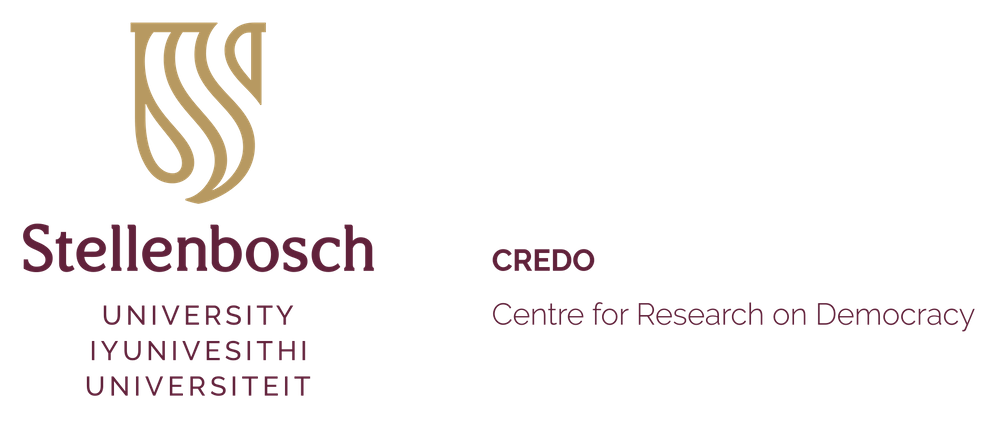
African Data Hub for the Study of Democracy
Part 1: introduction, share this page:, the road to democracy in south africa.
2 February 1990
President FW de Klerk announced the release from prison of Nelson Mandela and the unbanning of the African National Congress (ANC), Pan Africanist Congress (PAC) , the South African Communist Party (SACP ) and other liberation movements.
21 December 1991
The negotiations, known as the Convention for a Democratic South Africa (CODESA), first convened on that day at the World Trade Centre in Johannesburg. Over 220 delegates from nineteen political parties attended and vowed their commitment to negotiations by signing the “Declaration of Intent”, pledging among others:
- To bring about an undivided South Africa with one nation sharing a common citizenship, patriotism and loyalty, united in diversity, freedom, equality and security for all irrespective of race, colour, sex or creed; a country free from apartheid or any other form of discrimination or domination
- To work to heal the divisions of the past
- To strive to improve the quality of life of all people through policies that will promote economic growth and human development
- To set in motion the process of drawing up and establishing a constitution that would, among others:
- Ensure a united, democratic, non-racial and non-sexist state in which sovereign authority is exercised over the whole of its territory
- Become the supreme law and that it will be guarded over by an independent, non-racial and impartial judiciary
- Assure that all shall enjoy universally accepted human rights, freedoms and civil liberties including freedom of religion, speech and assembly protected by an entrenched and justiciable Bill of Rights and a legal system that guarantees equality of all before the law.
15 May 1992
President FW de Klerk delayed the second round of negotiations by calling for a whites-only referendum to seek support from this constituency for the continuation of negotiations. The majority of whites voted in favour. CODESA 2 began, but the negotiations soon broke down due to disagreements over the key issues of power sharing and majority rule, as well as the eruption of violence, which had claimed many lives.
Behind-the-scenes talks between the chief negotiators – a cabinet minister in the National Party (NP), Roelf Meyer, and the ANC’s Cyril Ramaphosa – managed to get negotiations back on track. The resultant Multiparty Negotiating Forum (MPNF) on April 1, 1993 paved the way towards the demise of apartheid.
5 March 1994
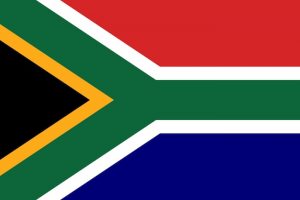
27 April 1994
The first democratic election was won by the ANC with Nelson Mandela becoming the first democratically elected president of the republic. Although the ANC had gained a majority vote, the party formed the Government of National Unity, in which FD De Klerk and the ANC’s Thabo Mbeki became deputy presidents.
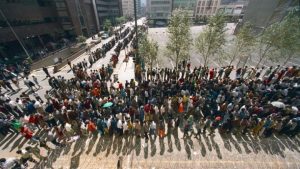
The hard won election was the crowning of the long and bitter struggle for liberation. The election has changed the history of South Africa, paving the way towards a new democratic dispensation and a new constitution for the country. For the first time in the history of South Africa, people of all races stood together in long snaking queues at the polls to vote for a government of their choice. Nineteen political parties had participated and twenty-two million people had voted. Contrary to widespread fears of political violence, the election was peaceful and took place in a festive atmosphere.
The ANC won the election with 62.65% of the vote. The National Party (NP) received 20.39%, the Zulu based Inkatha Freedom Party (IFP) 10.54%, Freedom Front (FF) 2.2%, Democratic Party (DP) 1.7%, Pan Africanist Congress (PAC) 1.2% and the African Christian Democratic Party 0.5%.
The Truth and Reconciliation Commission (TRC)

The Government of National Unity had set up the TRC to help deal with the apartheid past. Under apartheid human rights abuses were rife on all sides, and no section of society escaped these abuses. The TRC was established in the belief that “only the truth can put the past to rest” (Nelson Mandela).
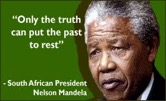
The TRC came into being under the auspices of the Promotion of National Unity and Reconciliation Act , No. 34 of 1995. The hearings, which started in 1996, were held to record the abuses, to grant amnesty to the perpetrators of human rights violations in some cases, and to offer reparation and rehabilitation to the victims. The TRC was headed by Archbishop Desmond Tutu (Chairman), and Alex Boraine (deputy Chairman).
25 May 2019
The history of South Africa seems to have come a full circle on 25 May 2019 , when President Cyril Ramaphosa has delivered his inauguration speech, promising the jubilant South Africans a ‘New Dawn’ after the ruinous years of the rule by Jacob Zuma.

Cyril Ramaphosa has played a pivotal role as head of the ANC delegation, which negotiated the end of apartheid with the apartheid government. He has gained respect as the co-convener of the internationally acclaimed South African Constitution, and along with his NP counterpart, Roelf Meyer, became a symbol for reconciliation and collaboration for the common good of all South Africans.
Congrats, you have finished Part 1!
Return to Study Guide Overview
An initiative of the Centre for Research on Democracy

Search form
- Revision Videos (Telematics) - History Grade12

List of Grade 12 textbooks Question Papers and Memos Mind the Gap Study Guides Self Study Guides
Videos for sale from Edumedia:
History catalogue
e-Mail your order | request to [email protected]
Watch these videos online or download them:
Telematic Schools Project YouTube Channel: Grade 12 History | Graad 12 Geskiedenis
History Telematics workbooks:
2015: English | Afrikaans
2019: English | Afrikaans
2023: English | Afrikaans
2016: English | Afrikaans
2020: English | Afrikaans
2024: English | Afrikaans
2017: English
2021: English | Afrikaans
2018: English | Afrikaans
2022: English | Afrikaans
The Cold War | Die Koue Oorlog
- The Cold War in Cuba and China
- The Cold War and Extension of the Cold War: Cuba and China
- Uitbreiding van die Koue Oorlog: China | 2018
- Extension of the Cold War: Cuba | 2018
- The Cold War in Cuba | 2017
Independent Africa
- Africa in the Cold War: Case Study Angola - What was the impact of the internal and external factors of Africa during the time?
- Africa in the Cold War: Angola 2017 | Afrika gedurende die Koue Oorlog: Angola 2017
The Cold War – Case Study: Vietnam
- Origins of the Cold War; Extension of the Cold War: Vietnam War
Civil Society protests from 1950s to 1970s
- Black Consciousness (source-based) | International resistance to Apartheid (essay)
- Civil rights Movement essay; The Road to Democracy essay paper 2
- Analyse the source
- Answering Source-based questions; Essay question
- Writing the History essay (basic content); paragraph writing (PEEL); Developing a Line of Argument
- The philosophy of the BCM and The impact of the BCM on students
- Black Power Movement and the Civil Rights Movement – improving our source-based questions and essay writing
Civil Resistance 1970s – 1980s, South Africa
- Steve Biko, Black Consciousness and the Soweto uprising
- International response to Apartheid – improving essay writing skills |
- Civil Rights Movement & The Black Power Movement: 2020 | 2019
- Black Consciousness Movement/ International Response to Apartheid: 2019 | 2018
- Civil rights Movement/ The Road to Democracy | 2018
Burgerlike weerstand in Suid-Afrika 1970s – 1980s
- Steve Biko, Swartbewyssyn en die Soweto-opstand | 2017
- Internasionale Reaksie op Apartheid in die 1980's
- Swartbewussynsbeweging/ Internasionale reaksie op apartheid: 2019 | 2018
- Burgerregte Beweging & Die Swartmagbeweging: 2020
- Burgerregte Beweging/ Die koms van demokrasie in SA | 2019
The coming of democracy to SA and coming to terms with the past
- The road to democracy in South Africa and coming to terms with the past and the TRC
- The road to democracy and coming to terms with the past | 2017
- Die Waarheid- en Versoeningskommisie
Exam preparation
- Exam prep: essay and paragraph work
- Exam preparation P1 and 2 2021 | Eksamenvoorbereiding V1 en V2 2021
- Exam preparation 2017
- Paper 1 2021 content | Vraestel 1 2021 inhoud
- Paper 2 2021 content | Vraestel 2 2021 inhoud
- Paper 2 Exam preparation: Essay writing: The Challenge of Black consciousness to the apartheid state | Source-based question: The crisis of Apartheid in the 1980s: Internal resistance
- Eksamenvoorbereiding: Brongebaseer en Opstel vaardighede | Opstel: Burgerlike Weerstand in Suid-Afrika 1970 – 1990
- Revision Paper 1: Source-based: The Origins of War | The Civil Rights Movement and Essay writing: The Vietnam War | The Black Power Movement
- Vraestel 1: Brongebasseer: Die Oorsprong van die Koue Oorlog | Die Burgerregtebeweging en Opstelskryf: Die Viëtnam-oorlog | Die Swartmagbeweging
- Paper 1 Topics Revision | Vraestel 1 Inhoud Hersiening
- Mindset Network
- The Road to Democracy
- Exam Revision
- Learn Xtra Exam Revision 2014
- The Cold War
- Independent Africa
- Civil Society Protests: 1950s to 1970s
- Civil Resistance in South Africa 1970s to 1980
- The Coming of Democracy in South Africa and Coming to Terms with the Past
- The End of the Cold War and a New World Order: 1989 to the present
Related Resources

Connect with social media
Sign in with your email address.
- Create new account
- Request new password

IMAGES
VIDEO
COMMENTS
For more information or questions feel free to contact me via Whatsapp or calls to 0729272510 (Msawenkosi Chamane) GOODLUCK!!!!!! Last modified on Thursday, 26 August 2021 07:36. Published in History Grade 12 Study Guides and Notes. ROAD TO DEMOCRACY ESSAY SAMPLE (TALKS/NEGOTIATIONS)NOTE:your introduction and conclusionis highlighted with green ...
GRADE 12 HISTORY [ESSAY NOTES] . THE SOUTH AFRICAN ROAD TO DEMOCRACY DEFINITION OF TERMS (a) Apartheid: a policy that discriminate people according to race, it was adopted by National party in 1948. ... Democracy : is a political system in which citizens of a country vote for
grade 12 history essay the road to democracy in sa, 19901994 on the 2nd of february 1990 de klerk opened parliament with speech that changed future and began. ... Grade 10 History June Exam Essay Dutch Colonisation OF THE CAPE. History 100% (18) 2. Vietnam Essay (Matric) History 95% (78) 2.
This is a Road to democracy Essay for Grade 12 learnersfor more Grade 12 history topics click the link belowhttps://youtube.com/playlist?list=PLjHpdK12vhKlBb...
The following packs should be consulted before attempting to answer past exam papers. History Paper 1 and 2 will require students to answer source-based questions and essay questions. ... South Africa Emerging as a Democracy. In this Grade 12 History Exam Revision lesson we consider what were the various obstacles that South Africa faced on the ...
Learn this NSC Grade 12 History essay that covers the topic of 'The Coming of Democracy' to South Africa. This essay fully answers Question 5 in the History NSC final examination. The author received 96% in the final exam.
HISTORY EXAMINATION GUIDELINES GRADE 12 2021 These guidelines consist of 11 pages. History 2 DBE/2021 ... ESSAY QUESTIONS PAPER 1 (ONE question per topic will be set) 1. The Cold War ... Final road to democracy in 1994 (27 April 1994 election; the Government of National Unity [GNU]) 3. The end of the Cold War and a new order
Learn about the history of South Africa's road to democracy with Mr V Mgwali, a Grade 12 teacher and expert on the topic.
In this Exam Revision lesson we take a close look at Gr 12 History questions and answers relating to the Road to Democracy. Revision Video. History / Grade 12 / Exam Revision. History / Grade 12 / The Coming of Democracy in South Africa and Coming to Terms with the Past.
Grade 12 history p2 essay road to democracy. Like Like. Reply. jabu says: August 4, 2015 at 9:35 am. How to download this information. Like Like. Reply. bongiwe says: October 11, 2016 at 10:24 pm. I have to learn many things. Like Like. Reply. Mitah says: November 20, 2021 at 12:41 pm.
Essay: Road to Democracy road to democracy essay sample note:your introduction and conclusionis highlighted with green colour.your lines of arguments are. Skip to document. ... Grade 10 History June Exam Essay Dutch Colonisation OF THE CAPE. History 100% (18) More from: History. FET (Further Education and Training) 569 Documents.
Thanks for choosing SOCIAL SCIENCE TV at this time of tje year. Please watch, like, comment , share and lastly subscribe for more content.Tags1. Grade 12 h...
The Grade 12 Road To Democracy Essay PDF Download is a comprehensive resource that delves into these challenges, providing insightful analysis and valuable information on the path to a more equitable society. ... To promote this understanding, grade 12 students can research and write an essay on democracy that explores its history, functions ...
attempt 'to make real that history'. (1 x 3) (3) 2.3 Explain what is implied by the statement 'reconciliation is an embrace of evil'. (2 x 2) (4) 2.4 Define the concept justice in your own words. (1 x 2) (2) 2.5 Explain to what extent Gobodo-Madikizela's assertion that the TRC was able to attain 'justice' can be regarded as valid. (2 x 2) (4)
Contrary to widespread fears of political violence, the election was peaceful and took place in a festive atmosphere. The ANC won the election with 62.65% of the vote. The National Party (NP) received 20.39%, the Zulu based Inkatha Freedom Party (IFP) 10.54%, Freedom Front (FF) 2.2%, Democratic Party (DP) 1.7%, Pan Africanist Congress (PAC) 1.2 ...
List of Grade 12 textbooks Question Papers and Memos Mind the Gap Study Guides Self Study Guides Watch these videos online or download them: ... Grade 12 History | Graad 12 Geskiedenis. History Telematics workbooks: 2015: English ... The Road to Democracy essay paper 2; Black Power Movement (BCM) and the Civil Rights Movement. Concepts;
The road to democracy in South AFrica. September 2003. Peace Review 15 (3):267-271. DOI: 10.1080/1040265032000130841. Authors: Tsakani Ngomane. University of Pretoria. Constance Flanagan.
The Road to Democracy. In this Exam Revision lesson we take a close look at Gr 12 History questions and answers relating to the Road to Democracy. Download the Note. Revision Note. History / Grade 12 / Exam Revision / Learn Xtra Exam Revision 2014. History / Grade 12 / The Coming of Democracy in South Africa and Coming to Terms with the Past ...
History Essay Grade 12 Road To Democracy - WE - Download as a PDF or view online for free
This essay is a short and summarized version of the Road to Democracy essay.
Summary Road to Democracy (Grade 12 IEB) Course. History. Institution. Elkanah House. In Depth full explanation about how SA become a democracy. All talks, conferences and disruptions. Background and after effect of democracy. Helped me achieve an 'A' in my final 2019 Maric Exam!
Grade 12 History 2023 | Road to Democracy Essay. Road to Democracy Essay. . De Klerk opened a parliament with a speech that changed the lives of South Africans that there is a light at the end of the...
#cheat #finalexam #grade12 #school #viral #pass #fyp #southafrica #Nelsonmandela #chrishhani #cyrilramaphosa #president #oliverthambo #capetownminutes #preto...